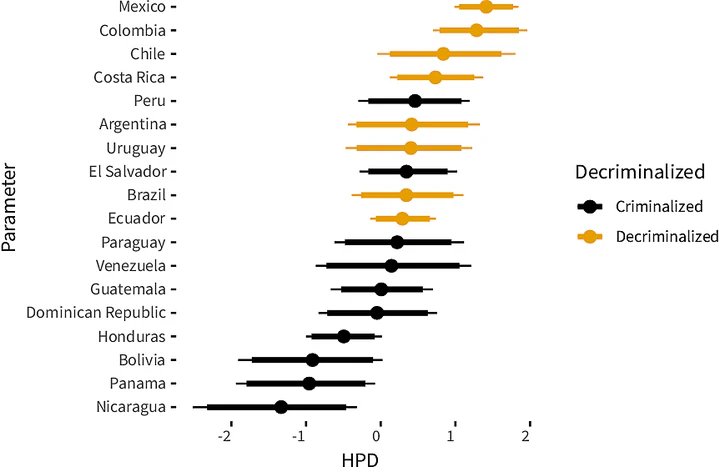Drug Legalization, Elite Support, and Government Effectiveness in Latin America

Abstract
In Latin America, the legalization of drugs—where it occurred—has been driven mainly by elites, although much attention has been placed on public opinion. Considering that efforts toward legalization have been top-down, analysis should concentrate on opinions of the governing elites. To undertake such an analysis, we draw on data from surveys conducted in 18 Latin American parliaments (2012–2018), and we examine elite perspectives on the legalization of all drugs. Results from a Bayesian hierarchical logistic analysis show that in countries where the government is less effective, and where public health problems persist, legislators are less likely to support legalization. We argue that this is due to a lack of trust by MPs in legalization as a solution to trafficking. Wherever those concerned with drug trafficking see the current government as problematic, they will be less likely to support so challenging and complex a policy as drug legalization.
Online appendix
The online appendix contains an extension of the procedures and results presented in the paper; the JAGS code for the statistical model, and the ggmcmc output for convergence diagnostics of the model parameters.
Code and replication material
The code for producing the results of the paper is available in the replication report:
Available as:
- PDF (8.1 Mb, 34 pgs), containing the main report in PDF with all the code.
Dataset
The dataset(s) with the survey data are available at PELA.